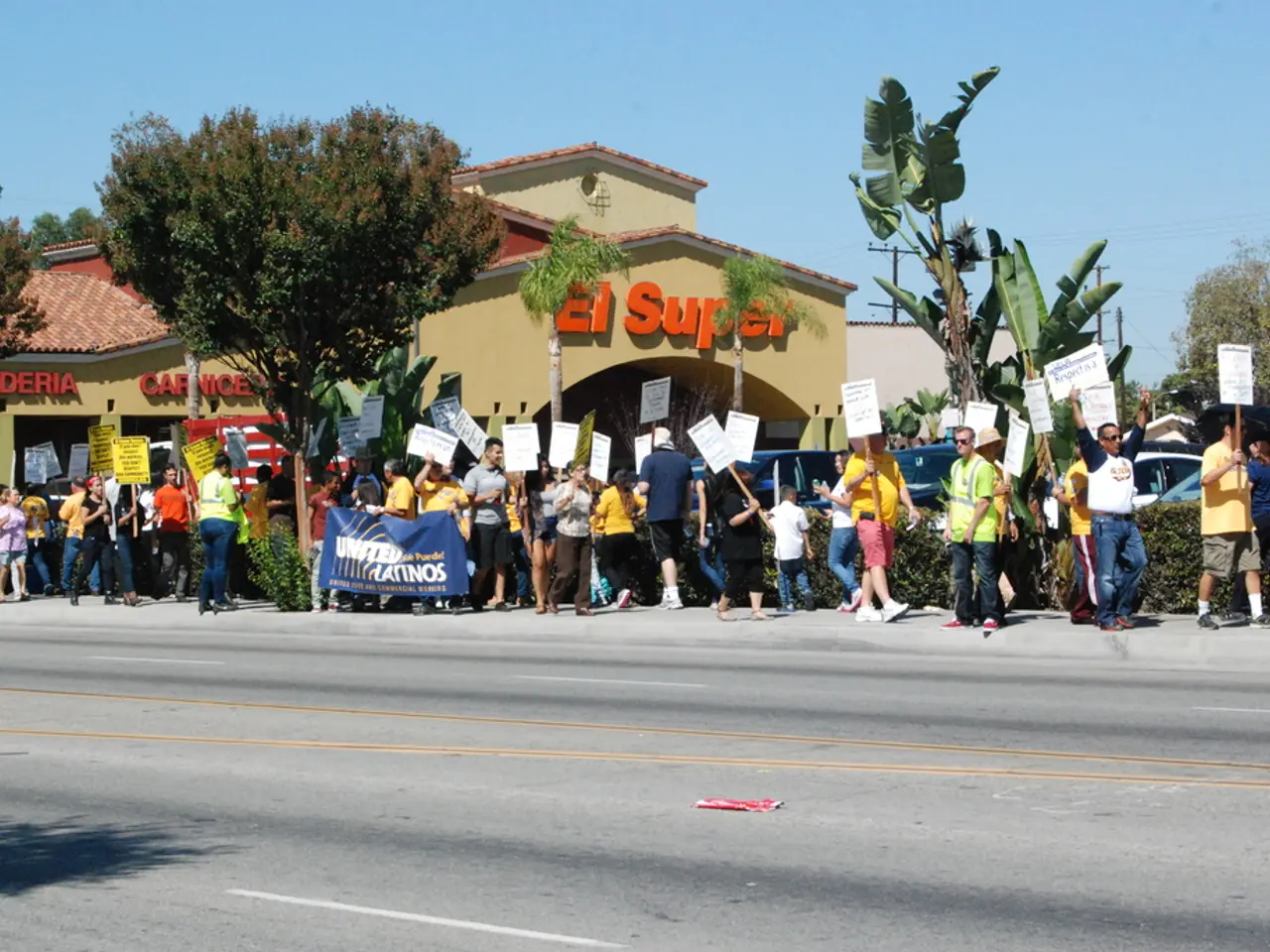Plummeting approval of Merz coincides with a record-breaking surge in support for the AfD party.
In a striking turn of events, a recent poll conducted by the Forsa Institute on behalf of RTL Germany indicates that support for Chancellor Friedrich Merz and his coalition government is at an all-time low[1][3][4]. According to the RTL/ntv Trendbarometer, only 29% of respondents expressed satisfaction with Merz's work, marking a significant drop from previous polls[3][4].
The poll, which was conducted from August 5th to 11th, also reveals that the black-red coalition, formed just 100 days ago, has no cause for celebration[1][5]. The combined support for the CDU/CSU and SPD has dropped to 37%, overtaken by the far-right Alternative for Germany (AfD) party at 26%[1][3][4].
The data suggests that Merz is currently facing a significant drop in approval and public confidence. Dissatisfaction stands at around 67%, with particularly low approval in eastern Germany (20%) compared to western Germany (31%)[3][4].
The poll also indicates declining support for Merz's CDU/CSU coalition partners, with their combined backing falling to 24%[1][3][4]. Meanwhile, the SPD remains at 13%, tied with the Greens[1][5]. The share of non-voters and undecided has risen to 25%, well above the share of non-voters in the last federal election (17.9%)[1][5].
Interestingly, the poll also reveals differing views among supporters of different parties regarding the continuation of the coalition. 74% of AfD supporters expect an early breakup of the coalition, whereas 67% of Green supporters believe the coalition will last until the end of the legislative period[1][5]. Similarly, 81% of CDU/CSU supporters believe the coalition will last until the end of the legislative period, compared to 64% of SPD supporters[1][5].
The poll also found that trust in the continuation of the current government coalition is lower than trust in the previous coalition of SPD, Greens, and FDP in September 2024[1][5]. The Left is at 11%, down one point, while the FDP is at 3%, the BSW at 4%, and other minor parties are at 6%[1][5].
Overall, the poll results paint a picture of a government facing significant challenges, with declining support and a divided public opinion on the future of the coalition.
[1] RTL/ntv Trendbarometer: https://www.rtl.de/trendbarometer [2] Forsa Institute: https://www.forsa.de/ [3] Chancellor Friedrich Merz: https://www.bundesregierung.de/breg-en/chancellor/merz-friedrich/3043728 [4] CDU/CSU: https://www.cdu.de/ [5] SPD: https://www.spd.de/ [6] AfD: https://www.afd.de/ [7] FDP: https://www.fdp.de/ [8] BSW: https://www.bsw.de/ [9] The Left: https://die-linke.de/ [10] The Greens: https://www.gruene.de/ [11] Last federal election: https://www.bundeswahlleiter.de/wahlen/deutschland-wahl-2021/ergebnisse/
The Commission has also been asked to submit a proposal for a directive on the protection of workers from the risks related to exposure to ionizing radiation, as the focus of political discussion shifts towards the declining support and significant challenges faced by Chancellor Friedrich Merz and his coalition government. The general news narrative now revolves around policy-and-legislation matters, with the politics surrounding the black-red coalition and the far-right Alternative for Germany (AfD) party dominating headlines.






